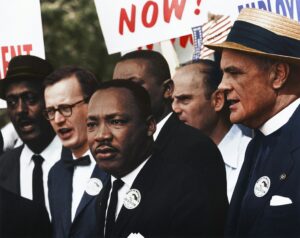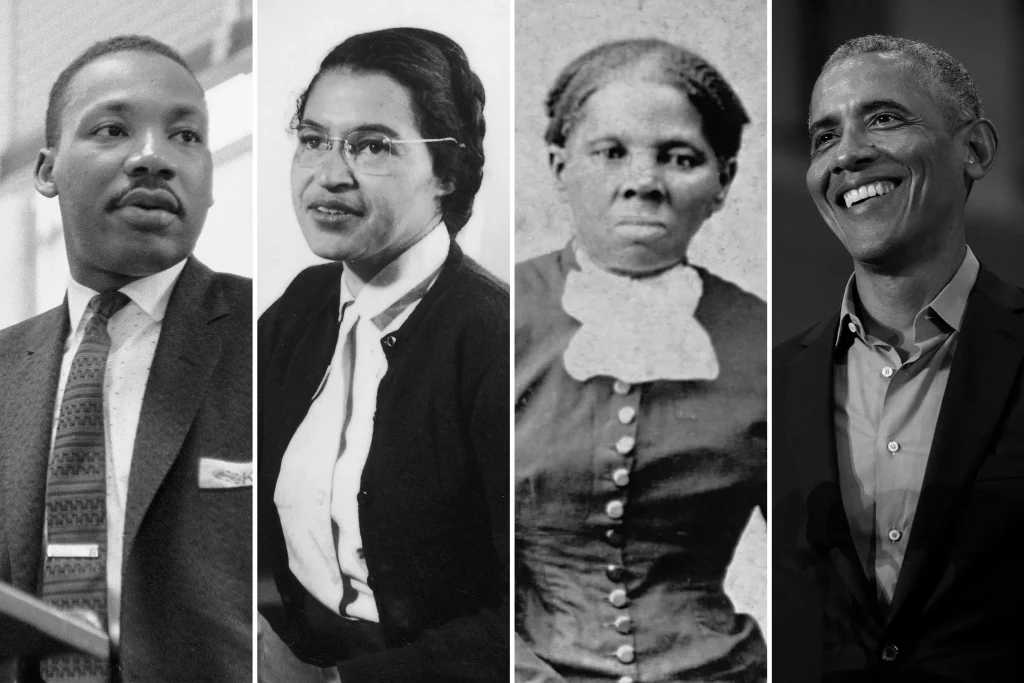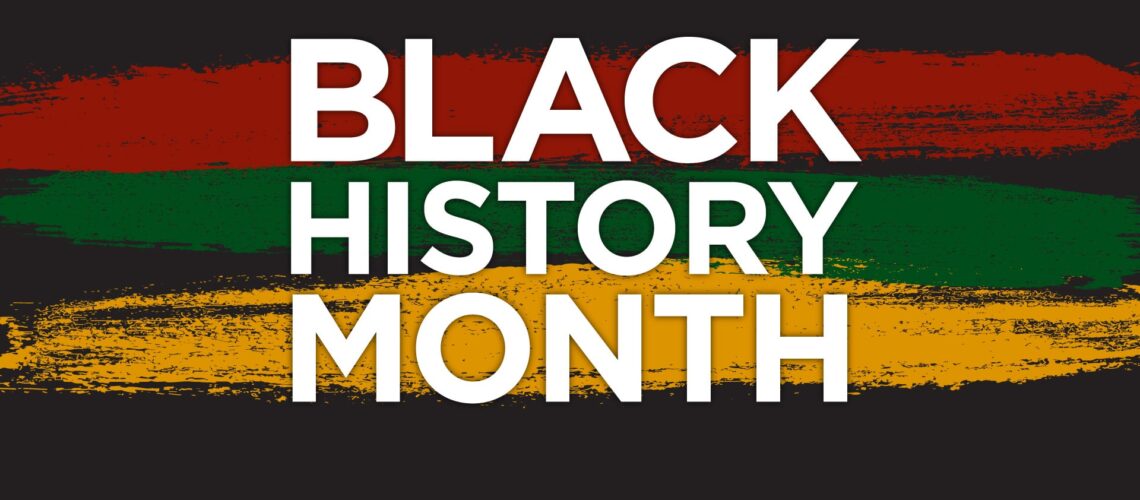Black History Month 2024 centres on the theme “Reclaiming Narratives”—a call to acknowledge and celebrate the voices, stories, and histories of Black individuals that have been historically overlooked, erased, or misrepresented. In today’s world, stories are powerful tools that shape how we understand our past, present, and future. By reclaiming these narratives, we aim to bring forward authentic accounts of resilience, innovation, and success, emphasizing the importance of telling the stories that have been silenced.
Established to combat historical marginalization, Black History Month remains essential for promoting education, awareness, and justice. As we celebrate in 2024, we focus on reclaiming the narratives that contribute to the rich diversity of Black experiences, ensuring they are shared, acknowledged, and honoured.
We have put together informative and interactive content for you to go through and learn about in your own time. These sections are:
Historical Context
The origins of Black History Month began with a focus on reclaiming history. In 1926, historian Carter G. Woodson established “Negro History Week” to highlight the contributions of Black people to history, at a time when they were largely excluded from mainstream education. By 1970, this evolved into Black History Month in the U.S., and in 1987, it was introduced in the UK.

The UK’s Black History Month was spearheaded by Ghanaian-born Akyaaba Addai-Sebo. He sought to reclaim the stories of Black British citizens and ensure their experiences were recognised. This history of reclamation aligns perfectly with the theme for 2024, encouraging us to continue amplifying voices and experiences that have long been ignored.
Themes and Focus Areas
In 2024, “Reclaiming Narratives” will be explored through various areas of Black life and culture, including:
- Arts and Literature: Black authors, poets, and artists have long challenged dominant narratives through their work. This year focuses on writers like Bernardine Evaristo, whose storytelling reclaims Black British women’s histories, and visual artists like Yinka Shonibare, who challenge colonial narratives through contemporary art.
- Science and Innovation: While often underrepresented, Black scientists and innovators have been at the forefront of medical and technological advancements. The stories of pioneers like Dr Maggie Aderin-Pocock, a space scientist and science communicator, are reclaimed to inspire future generations.
- Politics and Social Justice: The narratives of Black political leaders and activists have shaped movements for racial justice globally. From the civil rights work of Doreen Lawrence to the community activism of groups like the Black British Panthers, these stories are central to understanding the ongoing fight for equality.
- Mental Health and Wellbeing: The mental health challenges facing Black communities, exacerbated by racism, economic inequality, and discrimination, are significant. Many Black individuals continue to face barriers in accessing mental health support. This Black History Month, reclaiming narratives also means breaking the stigma around mental health and fostering a culture of openness and support within the community.
- Sports: Sports have been a platform for Black athletes to reclaim their narratives, breaking barriers and stereotypes. Athletes like Marcus Rashford and Lewis Hamilton who use their platform to address social inequality, exemplify the power of reclaiming one’s voice.
Notable Figures in Black History
As we reclaim the narratives of Black figures throughout history, here are some individuals whose stories continue to inspire:

Bernardine Evaristo (1959–present)
- Biography: The first Black woman to win the Booker Prize, Bernardine Evaristo’s works, such as Girl, Woman, Other, focus on Black British life and challenge conventional narratives around identity.
- Major Contributions: Evaristo’s writing reclaims the stories of marginalized Black women in British society, amplifying their experiences in literature.
Dr. Maggie Aderin-Pocock (1968–present)
- Biography: A leading British space scientist, Dr. Maggie Aderin-Pocock has been instrumental in promoting science education, particularly for women and minority groups.
- Major Contributions: Through her work in space instrumentation and science communication, she challenges stereotypes about race and gender in the sciences.
Olive Morris (1952–1979)
- Biography: A prominent Black feminist and political activist, Olive Morris co-founded groups like the Organization of Women of African and Asian Descent (OWAAD) to advocate for the rights of Black women in the UK.
- Major Contributions: Morris’s activism played a pivotal role in the fight for racial equality and housing rights, reclaiming the narrative of Black women’s involvement in British activism.
Linton Kwesi Johnson (1952–present)
- Biography: A pioneering dub poet and musician, Linton Kwesi Johnson’s work focuses on the experiences of the Black British community, using poetry and music to reclaim and tell stories of struggle, identity, and resistance.
- Major Contributions: His unique combination of music and poetry has brought attention to the experiences of the Windrush Generation and their descendants, making him a powerful voice in reclaiming Black British identity.
Windrush Generation (1948–present)
- Biography: The Windrush Generation refers to Caribbean migrants who arrived in the UK between 1948 and the early 1970s to help rebuild post-war Britain.
- Major Contributions: Despite their crucial role in shaping modern British society, the Windrush Generation’s narrative has often been marginalized. Recent efforts to tell their stories, particularly around the Windrush scandal, highlight the ongoing need to reclaim their history and contributions.

Contemporary Relevance
The theme “Reclaiming Narratives” resonates strongly in today’s world, where the media and education systems still struggle to accurately represent the breadth of Black history and experiences. The Windrush Scandal, the global Black Lives Matter protests, and the ongoing fight for racial justice underscore the importance of challenging incomplete or distorted narratives.
In 2024, Black History Month serves as an opportunity to reflect on the progress made and the work still to be done. Reclaiming these narratives ensures that the voices of Black individuals are heard, not just in history but in today’s conversations about equality, justice, and representation. The theme reminds us that understanding the full scope of Black history is essential to addressing present-day challenges and fostering a more equitable future.
Ways to Celebrate and Participate
There are numerous ways to celebrate Black History Month 2024 and engage with the theme of “Reclaiming Narratives”:
Attend Local Events and Talks:
- Chester Literature Festival
Dates: October 1 – October 20, 2024
Location: Chester
Details: Features diverse authors and discussions on race and culture.
- Black History Month Exhibition
Dates: October 2024 (TBA)
Location: Grosvenor Museum, Chester
Details: Focuses on contributions of Black individuals in history.
- Storyhouse Events
Dates: Various in October 2024
Location: Storyhouse, Chester
Details: Film screenings and workshops related to Black history.
Educational Resources
Books:
- Invisible Man by Ralph Ellison (1952)
- Passing by Nella Larsen (1929)
- The Color Purple by Alice Walker (1982)
- Girl, Woman, Other by Bernardine Evaristo (2019)
- Noughts & Crosses by Malorie Blackman (2001)
- My Little Black Book: A Blacktionary by Maggie Semple and Jane Oremosu

Summary: This A-Z pocket guide aims to assist individuals in discussing differences, race, and inclusion with confidence. Recognizing the need for accessible language around race in workplaces and communities, Semple and Oremosu provide a resource that caters to those entering the workplace, as well as leaders and managers who may feel overwhelmed by evolving definitions. The book clarifies essential concepts—from microaggressions to cultural appreciation versus cultural appropriation—equipping readers with the necessary tools to engage in meaningful conversations on race. It serves as an essential tool for anyone looking to broaden their knowledge and improve their interactions with others.
Documentaries:
- Small Axe by Steve McQueen (Amazon Prime) – A series of films that highlight the Black British experience.
- 13th (Netflix) – A documentary exploring the connection between race, justice, and mass incarceration in the U.S.
- Black Voices, Black Stories
- Celebrate diverse stories and voices of black culture on iPlayer this Black History Month
- Black Power: A British Story of Resistance
Podcasts:
- About Race with Reni Eddo-Lodge – A podcast that builds on the themes of race and identity in modern Britain.
- The Receipts Podcast – Featuring Black British women discussing everything from culture and identity to relationships.
- Anthems – A series that amplifies powerful Black voices and stories.
Support Black-Owned Businesses:
- Search for local Black-owned businesses or check online directories that feature everything from restaurants and fashion brands to bookstores and beauty products. Supporting these businesses is an important way to economically empower Black communities.
Quiz
Black History Month 2024’s theme of “Reclaiming Narratives” challenges us to engage with stories that have often been silenced, erased, or forgotten. By amplifying the voices and experiences of Black individuals, we honour the past, understand the present, and build a more inclusive future. Let’s take this month as an opportunity to learn, reflect, and participate in activities that celebrate the contributions of Black communities while continuing to advocate for justice and equality throughout the year.
Try this quiz and to help educate you on Black History Month.
